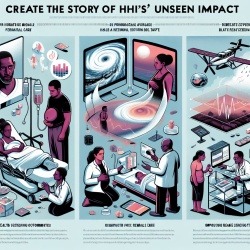Unlock the Secret to Mastering Food Allergy Severity: What Every Practitioner Needs to Know!
In the ever-evolving field of allergy management, staying updated with the latest research is crucial for practitioners. The WAO consensus on the Definition of Food Allergy Severity (DEFASE) provides groundbreaking insights that can significantly enhance your practice. This consensus, developed through a rigorous e-Delphi process, offers a comprehensive scoring system for food allergy severity, encompassing not just the severity of reactions but the entire disease spectrum.
Understanding DEFASE: A Game-Changer in Allergy Management
The DEFASE score is the first international consensus-based system to define the severity of food allergies. It considers five key domains:
- Symptoms/signs of the most severe previous reaction
- Minimum therapy required to treat the most severe reaction
- Individual eliciting dose
- Current food allergy-related quality of life
- Economic impact of food allergy severity
By integrating these domains, DEFASE provides a holistic view of food allergy severity, allowing practitioners to tailor their management strategies more effectively.
Why Practitioners Should Embrace DEFASE
Implementing DEFASE in clinical practice can bring numerous benefits:
- Standardization: Provides a uniform language and criteria for assessing food allergy severity.
- Comprehensive Assessment: Goes beyond symptoms to include quality of life and economic impact, offering a complete picture of the patient's condition.
- Improved Resource Allocation: Helps in prioritizing resources and interventions for patients based on the severity score.
- Enhanced Patient Care: Enables more personalized care plans, improving patient outcomes and satisfaction.
Encouraging Further Research and Validation
While DEFASE represents a significant advancement, ongoing research is essential to validate and refine the scoring system. Practitioners are encouraged to participate in studies and contribute to the continuous improvement of allergy management practices.
Future research should focus on:
- Validating the DEFASE score in diverse clinical settings and populations.
- Exploring the relationship between eliciting doses and reaction severity.
- Investigating the economic impact of food allergies across different healthcare systems.
Conclusion
The DEFASE score is a revolutionary tool that promises to enhance the management of food allergies by providing a standardized, comprehensive assessment of severity. By adopting this system, practitioners can improve patient care and contribute to the global effort to better understand and manage food allergies.
To delve deeper into the original research, please follow this link: WAO consensus on DEfinition of Food Allergy SEverity (DEFASE)?










